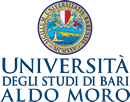About the Journal
Cross-Media Languages. Applied Research, Digital Tools and Methodologies is an international double-blind peer-reviewed academic journal that explores the intersection between research, critical reflection and educational practices, with particular focus on theoretical, methodological, experimental research for the application of digital tools and methodologies within the field of linguistics and language pedagogy. Since 2025, CML has been included in the ANVUR list of scientific journals. Promoting a plurilingual perspective (English, French, Italian, Spanish, German, Portuguese, Rumanian, Russian, Arabic, Polish, Serbo-Croat), the Journal encourages original submissions that incorporate scientific and systematic research findings concerning the role played by language and other verbal and visual communicative/semiotic systems in diverse linguistic and cultural contexts across modes, genres and text types.
The areas of interest at the intersection of critical reflection and applied studies intervene in contemporary debates in teaching, learning and research, creating an ongoing dialogue between tradition and innovation with special focus on the digital turn in interdisciplinary and trans-media perspectives in education and learning.
The focus of the Journal is, but is not limited to, three principal areas: research into linguistics, cultural-linguistic areas and specialized languages; broader reflections in literary and artistic-cultural disciplinary areas and, finally, research into all levels of education and learning contexts, including life-long learning.
The Journal is published annually with a strict double-blind peer review policy for original articles, reports of empirical studies, and case studies. The yearly volume may include the possibility for micro-theme inserts of no fewer than 3 papers. A ‘Miscellaneous’ section for articles of interest outside the Volume’s reach may also be created. Special Editions are planned. Languages for publication are: English, French and Italian. Articles presented in other languages must be approved by the editorial board.










